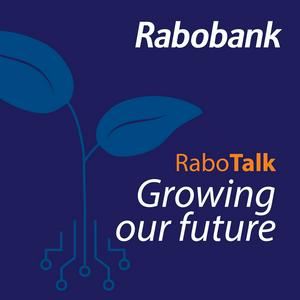Capitalising on opportunities for NZ horticulture with Kate Scott
New Zealand’s horticulture sector continues to grow in value and ambition, contributing billions to the economy and employing tens of thousands nationwide. In this episode of Growing Our Future, Blake Holgate sits down with Kate Scott, Chief Executive of Horticulture New Zealand, to explore the sector’s progress, resilience after recent weather events, and the strategic challenges ahead. From the Aotearoa Horticulture Action Plan to labour shortages and diversification opportunities, this conversation looks at what’s shaping the future of horticulture.Like what you’ve heard? Follow our podcast for more great content.Show NotesNew Zealand’s horticulture sector continues to grow in value and ambition, contributing billions to the economy and employing tens of thousands nationwide. In this episode of Growing Our Future, host Blake Holgate speaks with Kate Scott, Chief Executive of Horticulture New Zealand, about the sector’s progress, challenges, and the opportunities shaping its next chapter.A Strong Yet Complex SectorThe horticulture industry remains one of New Zealand’s most resilient performers, with export growth driven by success stories like kiwifruit and wine. But Kate notes a mixed picture, with some crops still recovering from recent weather events and profitability pressures. Despite this, she says the sector remains optimistic - grounded in innovation, adaptability, and a shared commitment to sustainable growth.Resilience and RecoveryFollowing Cyclone Gabrielle and flooding in Nelson Tasman, growers have shown remarkable resilience. Kate highlights the industry’s ability to collaborate, share lessons, and rebuild stronger, noting that this collective approach will be crucial as extreme weather events become more common.Strategic Challenges AheadKate points to rising input costs, access to energy, and infrastructure as key hurdles — especially for indoor growers reliant on gas. She emphasises the need for long-term planning to ensure affordable, sustainable energy options and smarter regulatory settings that balance environmental and economic goals.The Aotearoa Horticulture Action PlanA major focus for Horticulture New Zealand is the Aotearoa Horticulture Action Plan, which aims to double the sector’s farm gate value by 2035. Built around five pillars; sustainability, value, people, Māori participation, and science - the plan provides a roadmap for collaboration across growers, industry groups, Māori agribusiness, and government.Labour, Technology, and SuccessionLabour remains a critical issue for growers, with shortages continuing across both seasonal and permanent roles. While automation is helping in pack-houses, Kate says more innovation is needed in the field. She also highlights the importance of creating clearer succession and ownership pathways to attract the next generation into horticulture.Diversification for the FutureKate sees diversification as a key strategy for resilience, both within horticulture and across the wider food and fibre sector. Integrating horticulture with livestock or mixed-farming systems can unlock efficiencies, strengthen land use, and provide new income streams. These diverse models, she says, will help shape a more resilient and sustainable future for New Zealand growers.Key TakeawayNew Zealand horticulture stands at a pivotal point; optimistic but evolving. Collaboration, innovation, and forward planning will be essential to help growers remain profitable, sustainable, and well-positioned for the opportunities ahead.


